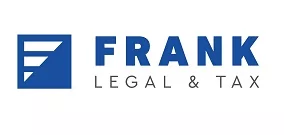With 38.27 million tourists visiting Thailand in 2018, generating a total income of 64.5 Billion USD, tourism is one of the major economic sectors in Thailand. Because of the high number of visitors, short term rentals for villas, condominiums or houses are highly requested. But lessors should take care to fulfill the requirements of the Thai government for this kind of rentals.
For every property that is rented on a short term (less than monthly) basis, and which not considered as the hotel under the ministerial regulation, a report of such rental must be filed to the local district office.
According to Article 1 of the Ministerial Regulation, prescribing the class and rule of hotel business B.E. 2551 (2008), a hotel license is needed for villas or any building with at least 4 rooms or capacity for more than 20 guests. Section 3(2) of the Hotel Act states that the definition of "hotel" does not include accommodation established for the purpose of accommodation for monthly (or longer) periods. This means the accommodation on a short basis or not required the hotel license, which is not a hotel under the regulation must still comply with the hotel act and is required to notify as a "non-hotel" at the district office. If the property qualifies as a hotel in terms of size and capacity, but the property is rented out on a monthly basis only, it is still not subject to the hotel act and does not require a hotel license or notification as a non-hotel.
Every rental less than a month must be reported to the registrar at the district office for a non-hotel activity of the villa. The notification must be done using a specific form as stipulated by the office. The following documents are usually required for such notification of non-hotel activity:
- Land Title Deed;
- House registration book of the villa;
- Building Permit of the villa;
- Floor plan of the villa;
- Map to the villa;
- Company's affidavit (in case the company is the villa owner);
- Memorandum of Association for the company; and
- An ID card or passport of the authorized director.
As a side note: This makes the notification a requirement when a property is rented out on Airbnb.
As the illegal operation of a hotel is subject to a jail sentence for up to one year or a fine up to THB 20,000 and additional fine up to THB 10,000 a day throughout the period of violation, according to Section 59 of the Hotel Act. This also constitutes a risk of blacklisting for foreigners, lessors of villas should be aware of this regulation.
The content of this article is intended to provide a general guide to the subject matter. Specialist advice should be sought about your specific circumstances.

